In a time of right-wing attacks on human rights and marginalized populations, we call on members of Congress to protect the right to boycott, and to cease demonizing the Boycott, Divestment, and Sanctions (BDS) movement for Palestinian rights. Take Action: Encourage your representatives to cosponsor the pro-boycott resolution here. H.Res. 246 against the BDS movement just passed committee today. Write Nancy Pelosi here and tell her not to bring the bill to the House floor. Call the Speaker's office here: (202) 225-0100 Contact the CBC and CPC below:
by Kwasi A. When i think of Palestine, Gaza is among the first things that come to mind. The reason is, it shares several similarities with my city, Detroit.
Both Gaza and Detroit are approximately 140 square miles. There are 1.8 million Palestinians living in Gaza. Known as the world's largest open air prison, residents suffer a unique oppression as they are blocked in by Egypt on the south, the Mediterranean Sea on the west, and Israeli-occupied Palestine on its northern and eastern borders. There is only one commercial road into Gaza, where essential goods are allowed to enter, and which is guarded by heavily armed Israeli military forces. It is the discretion of the Israelis whether or not goods are allowed to reach a desperate Palestinian population. Although Detroit's population of less than 700,000 residents is less than half of Gaza's, i often imagine what life would be like if Detroiters — 85% of whom are New Afrikan (black) — were blocked in: unable to leave by feet, car, boat or plane. Trapped in an urban space, with little resources, and an unemployment rate of a whopping 50% — the World Bank declared Gaza to have the highest in the world. Like Detroit, Gaza suffers major issues with basic services, such as access to water. In Detroit, nearly 50,000 of the poorest households have had municipal water service cut off for an inability to pay water bill. When the United Nations visited Detroit in 2014, they recommended that the water services be restored if city didn’t want to be in violation of basic human rights. Even still, Gaza faces far more severe issues with water. An estimated 90 percent of Gaza residents lack access to clean and safe drinking water. Add to this, Gaza's extremely limited access to electricity which is available for a limited number of hours per day. i imagine the impact on hospitals, which need both clean water and electricity to service the health concerns of a population suffering staggering levels of distress. There is much more that links Detroit to Palestine. While it is rarely spoken of in these terms, but Detroit is a city of black refugees. Euphemisms are used often to sanitize the history and stunt the resistance of New Afrikan people. Detroit's New Afrikan population arrived in waves from the southern states in America. The southern states are where millions of Afrikans, victims of a pernicious state-sanctioned system of international human trafficking, were brutally subjected for 246 continuous years to chattel slavery. When freed in 1865, New Afrikans — who developed a new identity and culture in the course of our long struggle against white supremacist domination, distinct from both the continental Afrikans from whom We descend and the Americans who oppressed them — ventured to create a new life for themselves in the southern states. Land grants were issued and then reneged upon, and white supremacy reascended with great force and intensity. In turn, New Afrikans were subjected to a neo-slavery existence via publicly-sanctioned lynchings, Black Codes (racist laws), tenant farming, false imprisonment and forced to work on chain gangs, and a form of humiliating and life-threatening subservience to white authority. White supremacist organizations sprouted up across the southern states, determined to restore as much of the lifestyle that Americans (whites) enjoyed under slavery. In response, many New Afrikans fled the south, the land where their blood, sweat and tears fertilized the soil, where for 246 years they buried their loved ones. Millions left the land known as the Black Belt due to the majority black population across the former slave states, and headed north and west as refugees. Similarly, some 7.2 million Palestinians are scattered around the globe as refugees from their homeland. i had the pleasure to meet some of these refugees during a visit to Lebanon in March 2018. The enduring courage and steadfastness of the refugees at camps in Tripoli and Beirut speaks volumes to the humanity and righteousness of the Palestinian cause as they face mounting hardships, especially as the United States contributions to the United Nations Relief and Works Agency (UNRWA), which allocates dedicated and desperately needed services and resources to more than five million Palestinians, has been abruptly cut. Since 1948 — known as the Nakba, the "Catastrophe" — many Palestinians fled their homeland due to life-threatening risks and hardships caused by the war of Israeli occupation, and are unable to return to their homeland. In Gaza, an estimated 70 percent of the population are refugees from other areas of occupied Palestine. Hence, the Great March of Return, which i have followed intensely since it was launched in Gaza in March 2018. i deeply empathize and draw inspiration from the Palestinian people who courageously protest dire living conditions through nonviolent but determined protest at the border fence to Israeli-occupied Palestine. In the past year, thousands of grassroots Palestinians of all ages and genders have participated in the weekly Friday protest. And to be clear, though the Palestinians have exercised nonviolence, they have suffered continued casualties from Israeli military, who have used drones to drop tear gas on the protesters, and live gunfire resulting in over 250 Palestinians killed and over 28,000, including women and children. Detroit and Gaza has many similarities, but the fact is that my city isn't an open air prison, and black Detroiters with a desire to return to the black belt south are presently free to do so (many New Afrikans refer to this as our national territory, and i plan to return here very soon). Palestinians do not enjoy this privilege, and ultimately, that is all the Great March of Return is about: the freedom to return to their homeland without conflict. We are horrified to see our Muslim family attacked in such a violent and public way. Words cannot soothe the devastation, pain and fear that acts of Islamophobic terrorism create. Whether they be the violent actions of a lone gunman or the coordinated imperial wars of the West, violence against Muslims and Arab people must end.
In the wake of yet another false accusation of anti-semitism against Rep. Ilhan Omar, we are reprinting her full remarks from a DC event on Feb. 27. These are the words which the Democratic establishment attempted to condemn her for. Read our statement of support for Rep. Omar here.
Q: [Moderator] We have a couple of questions from the audience on Venezuela.
[Audience Member] What do you and the Progressive Caucus or Congress in general think you can be doing or should be doing to fight this administration’s super hard line on this? Rep. Omar: I must confess I spent many years watching hearings, Congressional hearings at home and screaming at the TV. Thinking about all the questions people should be asking and no one was. So when I got the opportunity I could not resist. And I had to go for it. We have foreign policy that really has been detrimental to our security, detrimental to uplifting and living up to American ideals, one that has been detrimental in having positive American outlook around the world. It’s almost as if people in Congress and many of these administrations – regardless of whether it's Republican or Democrat, even progressive and not progressive – there’s just this facile memory. It’s like everybody has their statements ready and they just insert the name of the country. And there is no thought that goes into what our involvement in this nation is going to look like, what are the collateral damages, what happens after we engage? And today I had the opportunity to ask these questions to Secretary Albright, who came to committee, because I was concerned that we seem to be engaging in the same kinds of policies over and over again. There’s a country that has a government we don’t like, there’s a complaint, there’s some sort of humanitarian crisis that’s happening, there’s a civil war that might take place, and we just decide – these are our allies, this is what our interest is, and we go in. The risk of 100,000 people dying might have existed, that we end up killing or being part of the deaths of 300,000 half a million, or more. And then it’s like, “Oh, we helped!” and there’s the destruction of hospitals, of schools, of every kind of infrastructure. And she was in agreement that there’s really no thought process that goes into thinking through, 'Oh if we engaged in this kind of way, what happens 6 months, 8 months 6 years, 10 years from now? And so, when it comes to Venezuela, for me it is an opportunity for us to really awaken the peoples’ conscience to this kind of sad reality of our foreign policy. We shouldn’t just issue our press releases with a new name on it, with a new country on it. We should say “what is really happening in this country?” If we are for the advancement of democracy, what does this country’s constitution actually call for? You can’t be in the business of recognizing a country’s new leader, when you would not allow that for yourself. None of this are happy with the kind of president we have. If a foreign country said “we think because Hillary got lots of votes, we’re just going to acknowledge Hillary as the leader of the United States, we would have a problem with that because you would say ‘our constitution says that it’s not about the number of votes you get', but… [audience answers – electoral college]. Fortunately and unfortunately that is what our constitution says. We govern within the constitution. So we should be in the business of allowing people to govern within their constitution. So for me I acknowledge there is a humanitarian crisis that’s taking place. And it is not only okay for us to acknowledge that but we also have to reckon with the fact that there are humanitarian crises going on in Yemen and we have not blocked our mind and threatened an intervention because of it. Because the people who are causing the humanitarian crises are our friends. So I’m not in the business of sitting around because my friend is killing, and I’m not in the business of screaming because my enemy is killing. I’m in the business of saying no human life is worth less than the other. And as much as we care about our sovereignty about the protection of our constitution, we should afford other people the same dignity and respect to do that. And yes we have a responsibility as the leader of the world, but our responsibility should be one that is guided by morality, one that is guided by justice, one that is guided buy ethics, one that is guided by humanity. And not by profits, by interests. So I get upset about these things and everybody says “You know Ilhan, you’re not Palestinian, why are you screaming about Palestine?” “Ilhan, you’re not Saudi, why are you screaming about Yemen and what is happening in Saudi Arabia? Ilhan, you’re not Venezuelan. Well I’m a member of Congress. And in Congress we’re debating these issues. You might want to continue to see me as Somali, but I am a member of Congress. An American member of Congress. And people will just have to deal with it. Q: Moderator: I want to pivot a little bit and talk about an issue that tends to keep cropping up over and over again and that’s the issue of antisemitism. I know that’s a sensitive topic and I now it’s an issue that has been out there and is used oftentimes to quiet people, to disparage them, to isolate them, and to make them feel like they’re not connected to something bigger. Can you please speak to the process by which this happens and what can we as a community do to help support you, so that when we are criticizing Israel for some of the war crimes it has done, it is not seen as ‘you’re anti-Semitic,’ because you’re not criticizing the religion, you’re not criticizing Jewish people, you’re criticizing government policies. It’s like we criticize different polices here in the US when our government doesn’t do something right. Can you talk a little bit about that? Ilhan: I know that I have a huge Jewish constituency. And every time I meet with them, they share stories of safety and sanctuary that they would love for the people of Israel. And most of the time when we’re having the conversation, there is no actually relative that they speak of [Rashida Tlaib had just spoken of her grandmother who lives under Israeli military occupation in the West Bank]. And there is still lots of emotions that come through because it’s family. My children still speak of Somalia with passion and compassion even though they don’t have a family member there. But we never really allow space for the stories of Palestinians seeking safety and sanctuary to be uplifted. The dehumanization and the silencing of a particular pain and suffering of people should not be okay and normal. You can’t be in the practice of humanizing and uplifting the suffering of one if you’re not willing to do that for everyone. So for me, I know that when I hear my Jewish constituents or friends of colleagues speak about Palestinians who “don’t want safety” or Palestinians who aren't deserving, I stay focused on the actual debate about what that process should look like. I never go in the dark place of saying ‘here’s a Jewish person, they’re talking about Palestinians, Palestinians are Muslim, maybe they’re Islamophobic.' I never allow myself to go there because I don’t have to. What I am fearful of, is that because Rashida and I are Muslim, that a lot of our Jewish colleagues, a lot of our constituents, a lot of our allies, go to thinking that everything we say about Israel [is] anti-Semitic because we are Muslim. To me it becomes something that is designed to end the debate. I know what intolerance looks like and I’m sensitive when someone says, “the words you use Ilhan, are resemblance of intolerance.” And I am cautious of that and I feel pained by that. But it’s almost as if every single time we say something, regardless of what it is we say, that it’s supposed to be about foreign policy or engagement, our advocacy about ending oppression, or the freeing of every human life and wanting dignity, we get to be labeled in something, and that ends the discussion, because we end up defending that, and nobody ever gets to have the broader debate of “what is happening with Palestine?” So for me, I want to talk about the political influence in this country that says it is OK for people to push for allegiance to a foreign country. I want to ask, why is it OK for me to talk about the influence of the NRA, of fossil-fuel industries, or Big Pharma, and not talk about a powerful lobby that is influencing policy? I mean, most of us are new, but many members of Congress have been there forever. Some of them have been there before we were born. So I know many of them, many of them, were fighting for people to be free, for people to live in dignity in South Africa. I know many of them fight for people around the world to have dignity, to have self-determination. So I know, I know that they care about these things. But now that you have two Muslims who are saying, “here is a group of people that we want to make sure they have the dignity that you want everyone else to have!”…we get to be called names, we get to be labeled as hateful. No, we know what hate looks like. We experience it every single day. We have to deal with death threats. I have colleagues who talk about death threats. And sometimes…there are cities in my state where the gas stations have written on their bathrooms “assassinate Ilhan Omar.” I have people driving around my district looking for my home, for my office, causing me harm. I have people every single day on Fox News and everywhere, posting that I am a threat to this country. So I know what fear looks like. The masjid I pray in in Minnesota got bombed by two domestic white terrorists. So I know what it feels to be someone who is of faith that is vilified. I know what it means to be someone whose ethnicity is vilified. I know what it feels to be of a race—like I am an immigrant, so I don’t have the historical trauma that some of my Black sisters and brothers have in this country, but I know what it means for people to just see me as a Black person, and to treat me as less than a human. And so, when people say, “you are bringing hate,” I know what their intention is. Their intention is to make sure that our lights are dimmed. That we walk around with our heads bowed. That we lower our face and our voice. But we have news for people. You can call us any kind of name. You can threaten us any kind of way. Rashida and I are not ourselves. Every single day we walk in the halls of Congress, we have people who have never had an opportunity to walk – they are walking with us. So we’re here to represent the voices of people who have been silenced for many decades and generations. And we're here to fight for the people of our district, who want to make sure that there is actual prosperity being guaranteed. Because there is a direct correlation between not having clean water and starting endless wars. It’s all about the profit and who gets benefits. There is a direct correlation between corporations that are getting rich and the fact that we have students that are shackled with debt. There is a direct correlation between the White House and the people who are benefitting from having detention beds that are profitized. So what people are afraid of is not that there are two Muslims in Congress. What people are afraid of is that there are two Muslims in Congress that have their eyes wide open, that have their feet to the ground, that know what they’re talking about, that are fearless, and that understand that they have the same election certificate as everyone else in Congress.
Condensed version of Ilhan's remarks and full copy of the entire event below:
Black for Palestine offers our unequivocal support to our sister Rep. Ilhan Omar. Ilhan Omar is the first Somali-American and the first Black Muslim woman elected to the United States Congress. Omar has been a long-time critic of the Israeli occupation of Palestine and the Israeli government’s ongoing human rights crimes against the Palestinian people. She and Rep. Rashida Tlaib are also the first elected Congress members to openly support the BDS movement. On Feb 8, Republican House Majority Leader Kevin McCarthy threatened to take action against Rep. Rashida Tlaib and Rep. Ilhan Omar, supposedly for their criticisms of Israel and for their pro-BDS stances⎯views which McCarthy suggested were anti-Semitic and “not allowed in this country.” When Rep. Ilhan Omar suggested in a tweet that AIPAC money was behind Kevin McCarthy’s attack, pro-Israel organizations and writers and Congress members from both parties said her statement was anti-semitic and hateful. This couldn’t be further from the truth. AIPAC does spend a lot of money lobbying and fundraising for Congress members, and so does the Israeli government directly. Organizations and governments don’t spend money for their health. They do so to gain influence. On Twitter, Omar retweeted a follower who said, “accurately describing how the Israel lobby works is not anti-semitism.” Lobbyist Spending by Israeli Government and Zionist Organizations Source: Open Secrets As a black woman. As a Muslim. As a Somali immigrant and a supporter of Palestine and human rights, there are double and triple standards against Rep. Ilhan Omar. According to Israel supporters, every criticism of Israel and every passionate cultural reference is an anti-Semitic dog-whistle. By putting Ilhan Omar on the defensive in this way, Israel supporters hope to stop her from boosting a national movement against the Israeli occupation. But the threat the Israeli government sees in Rep. Omar and so many others is precisely the reason why we must push back even harder. Just imagine what it would look like for a conscious black immigrant woman to co-lead a popular movement in support of Palestine, as a sitting U.S. Congress member? Israel supporters don’t want to find out what that would look like or what the results of that would be. After all, one of the very clear goals of the BDS movement is to pressure governments to place sanctions on Israel. We know that Ilhan Omar stands on the side of justice, human rights and against bigotry and anti-Semitism. She is against corruption, occupation, imperialism and genocide. And that’s why Black for Palestine is proud to stand with Ilhan.
#WeStandWithIlhan #AntiIsraeliOccupation #FreePalestine #RightofReturn #NoIsraelLobby Birmingham institute cancels human rights award for Angela Davis over her Palestine activism1/6/2019
Photo courtesy of Black-Palestinian Solidarity The Birmingham Civil Rights Institute canceled its prestigious human rights award for Angela Davis following outcry from "concerned individuals and organizations." Davis, the Black revolutionary feminist icon, grew up in Birmingham under the Jim Crow apartheid regime. "Upon closer examination of Ms. Davis’ statements and public record, we concluded that she unfortunately does not meet all of the criteria on which the award is based," the institute wrote in a statement on Sunday. While the institute has not provided specifics on the concerns or their award criteria, it is clear that Davis's support for Palestine is one of the main reasons for the reversal. A statement from Birmingham's mayor revealed that these concerned individuals were from the "local Jewish community and some of its allies." The only public objections to Davis's award is a December 2018 article from Southern Jewish Life:
Read more about Rasmea Odeh's activism, forced confession and Angela Davis's support for her at Ebony.
You can also read our statements of support for Marc Lamont Hill and Rasmea. 2015 protest in São Paulo against the police killing of Afro-Brazilian youth. We are writing this statement to extend our solidarity to our comrades in Brazil, who are facing a rising fascist threat in their country. We commit ourselves to building a resistance to right-wing authoritarianism in Brazil, the US, and around the world. Far-right figure Jair Bolsonaro’s win in Brazil’s most recent presidential election is cause for alarm for anyone concerned with the fight against oppression. Bolsonaro is a misogynist who has spoken casually about raping women. He supports the use of torture and speaks with nostalgia about Brazil’s twenty-one year dictatorship. Bolsonaro’s election is the latest development in a series of disturbing events in Brazil. In 2016, the right wing impeached leftist president Dilma Roussef—the first female president of Brazil—ending her presidency not with a democratic election, but with a quiet coup. In that same year, left-wing former president Luiz Inácio Lula da Silva was jailed and he has remained in prison ever since. A Brazilian electoral court then prevented Lula from running in the most recent Presidential election while he appealed his case. And earlier this year, Black, queer, socialist militant and politician Marielle Franco was assassinated in Rio de Janeiro while she was on way home from delivering a speech. As Black activists who build solidarity with the Palestinian struggle, our outlook is always one that connects freedom struggles around the world with our struggles within the borders of the US state. As internationalists, we know that the fates of oppressed groups of people around the world are bound up with each other; we rise or fall together. We also know that our enemies support each other and work together to undermine democracy and people’s liberation movements. The United States for instance, has long been a friend of dictatorships and reactionary violence around the world, and with Trump as president, we know that Bolsonaro has a friend in the White House. The U.S. has a history of meddling in the politics countries around the world, specifically, funding right-wing opposition movements and inciting coups in Latin America. In 2013, WikiLeaks revealed that the NSA was spying on world leaders, including former President Roussef and members of her administration. Wikileaks also revealed that Rouseff’s successor, Michele Temer was an informant for US intelligence services. With the U.S. government’s long history of supporting right-wing coups and interfering in the politics of countries around the world, its spying capabilities and its alignment with Brazil’s corporate right-wing, it has undermined and continues to undermine democracy in Brazil. It must be stopped. We are concerned for Indigenous peoples, as Bolsonaro calls for the seizure of more Native land to feed the desires of Brazilian and international corporations and banks. We are concerned for LGBTQ people and women, whom Bolsonaro speaks about with hateful contempt. We are concerned for migrants, who are particularly vulnerable to Bolsonaro’s nationalism. We are concerned for the poor and working class of Brazil, who will suffer because of Bolsonaro’s policies. On the left, Marielle Franco, the Black, queer, socialist politician who was assassinated earlier this year. On the right, Brazilians marching for justice against her killers. We are also concerned for Afro-Brazilians, who already face alarming levels of state violence and who Bolsonaro explicitly denigrates. We want to call attention to this population—and what it is facing--in particular. More enslaved Africans were sent to Brazil than any other country during the Trans-Atlantic slave trade, and Brazil today has the largest population of African descent outside of the continent. The result is that the largest Black populations in the Americas each live and struggle under right wing rule. It is essential for us to learn more about the conditions of our family in Brazil and to resist the U.S.’ efforts to further destabilize the country.
With friends like these, our enemies should be clear. We call on others where we are and around the world to join us in building solidarity with our comrades in Brazil. We will do what we can to contribute to that solidarity. From the streets of US cities to Brazil, to Palestine, we fight with each other and for each other.
“Regarding the question of Palestine, beyond words we must ask the question, what does justice require? To truly engage in acts of solidarity, we must make our words flesh. Our solidarity must be more than a noun. Our solidarity must become a verb.”
Black for Palestine expresses our full support for journalist and professor Marc Lamont Hill and condemns CNN's decision to fire him for speaking in support of Palestinian human rights.
Marc was the sole representative of civil society invited to speak at the United Nations’ International Day of Solidarity with the Palestinian People on November 28. By the following day, Zionist groups including the Anti Defamation League alleged that Marc was an anti-Semite and called on CNN to drop Marc as a political commentator. The corporate news outlet fired him a few hours later. Marc has been an outspoken advocate for human rights for all people. His most notable work has been his advocacy for Palestinian rights and for Black people in the U.S. settler state. He was one of the only voices on CNN, Black or otherwise, with a commitment to speaking truth to power.
|
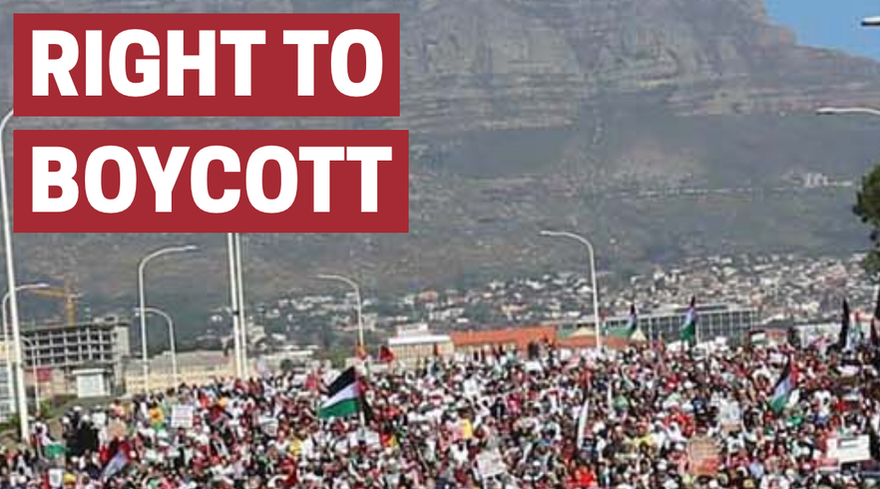
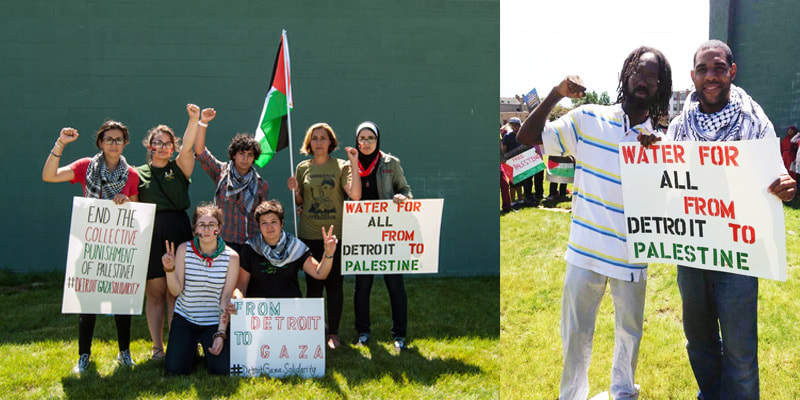
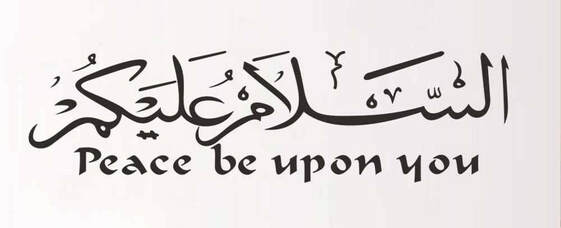
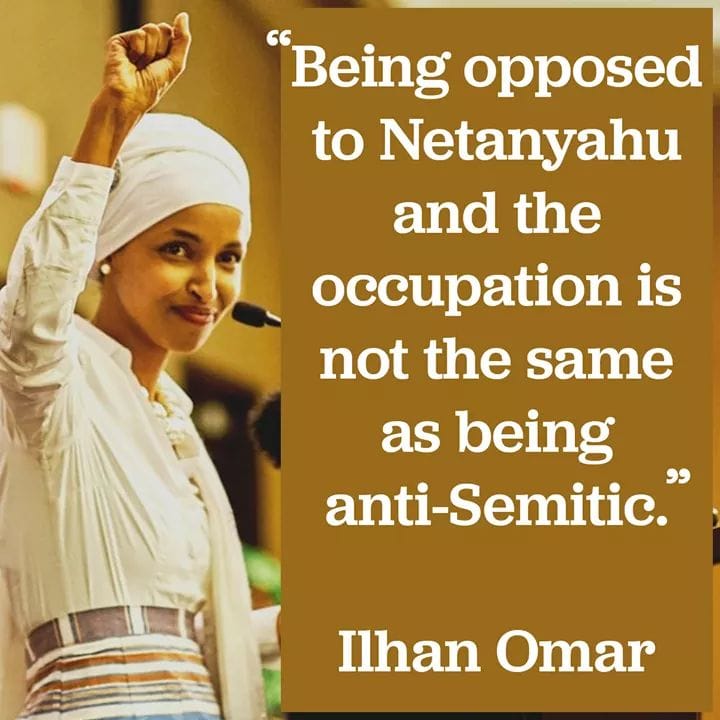
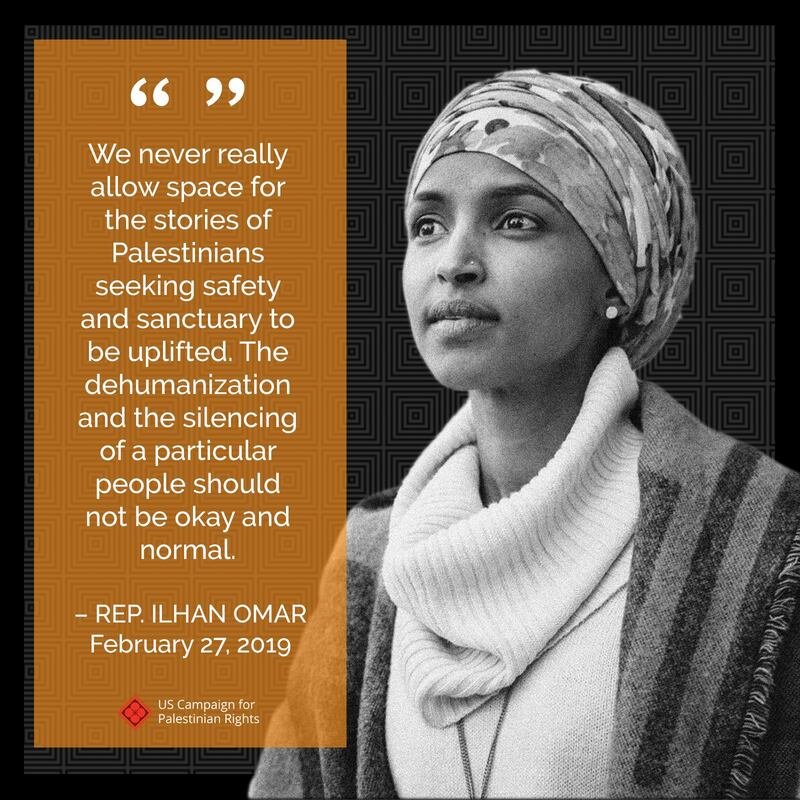
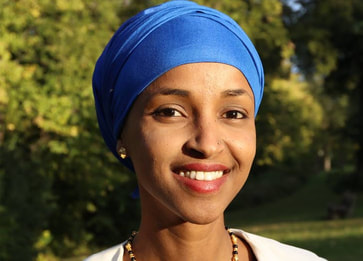
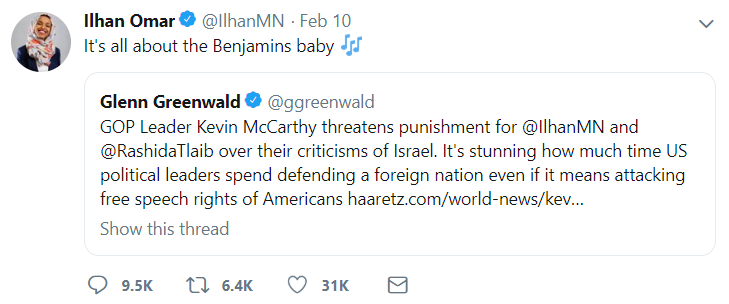
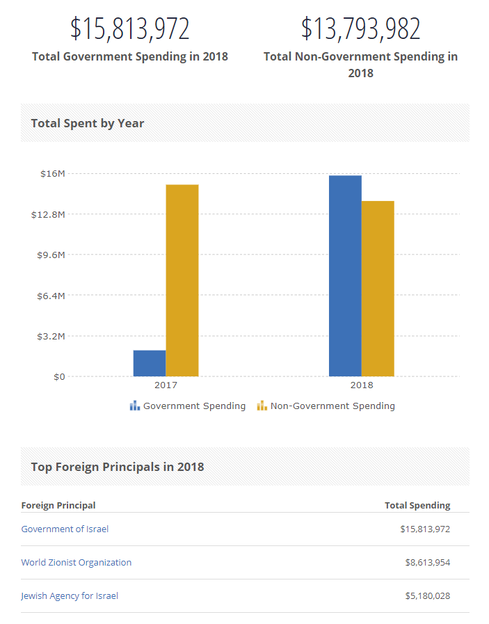
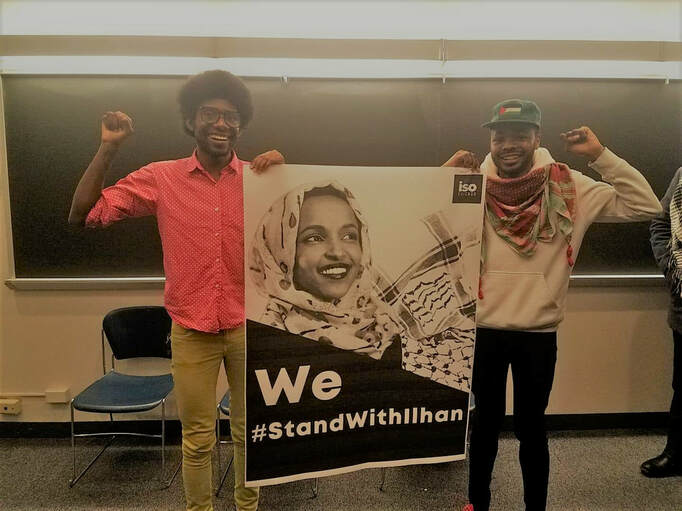
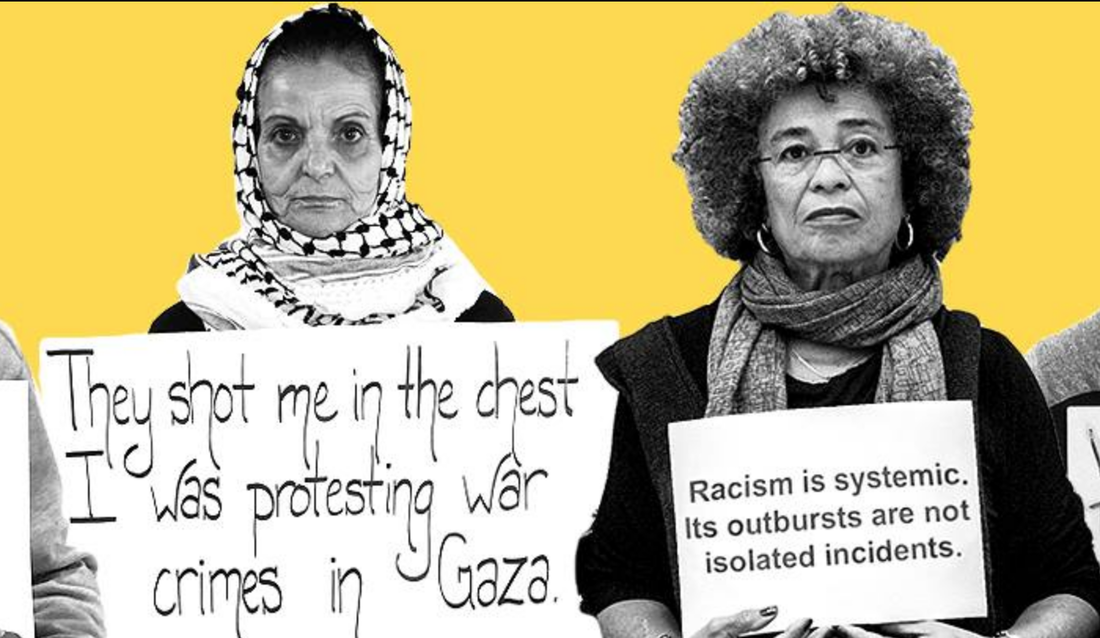
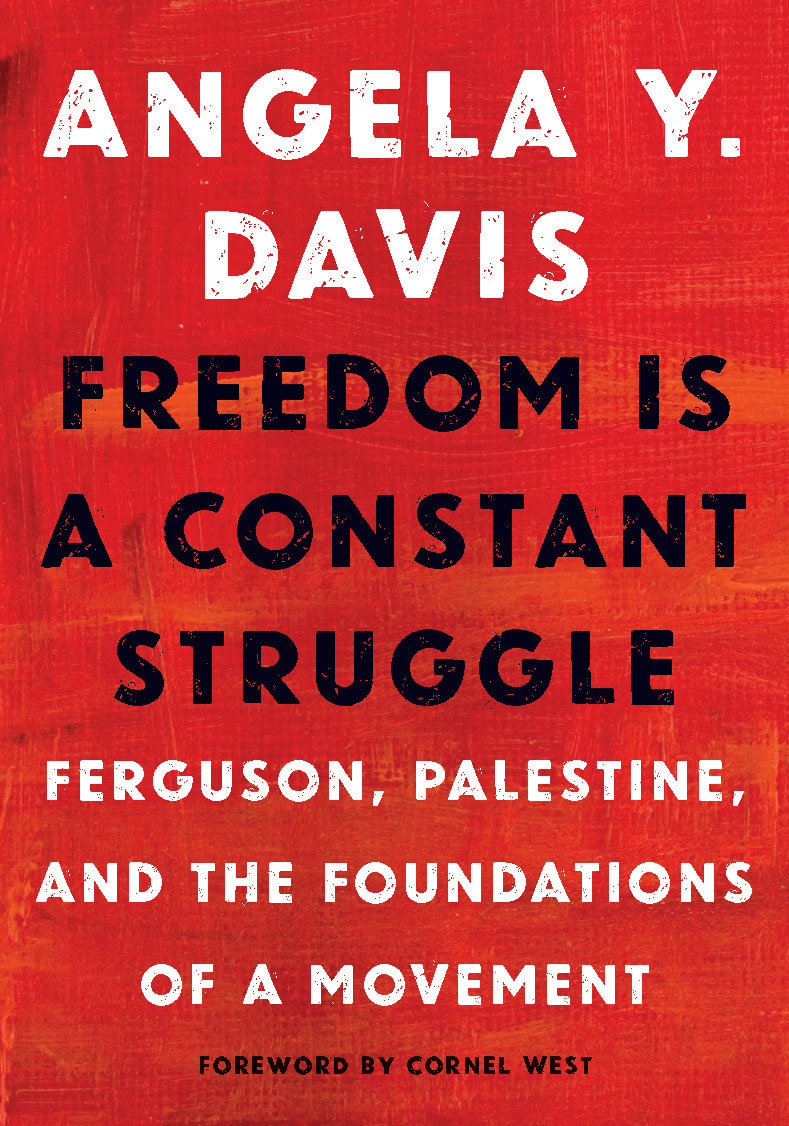
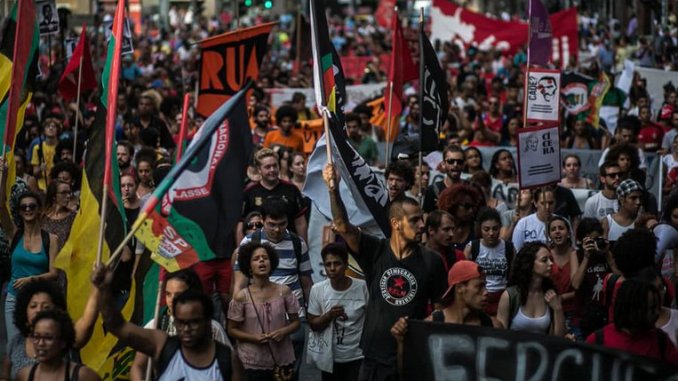
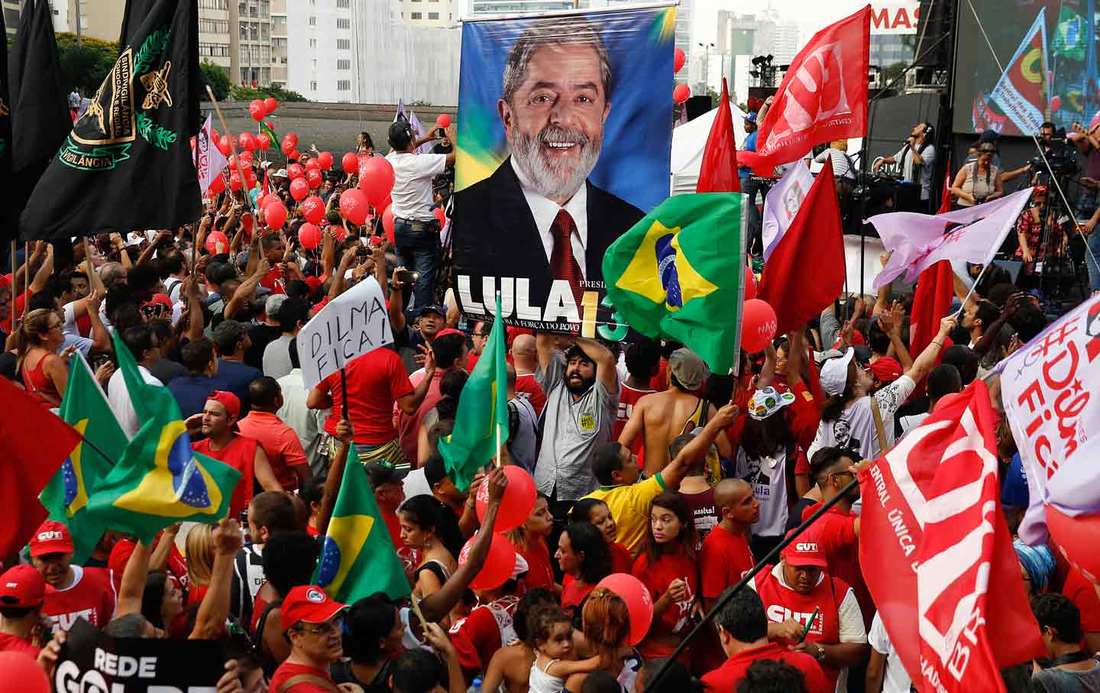
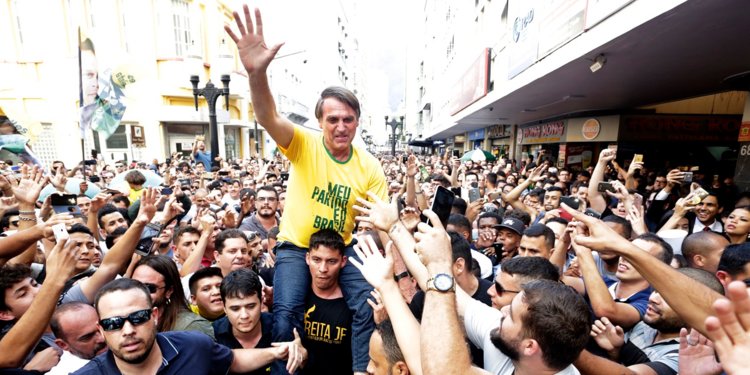
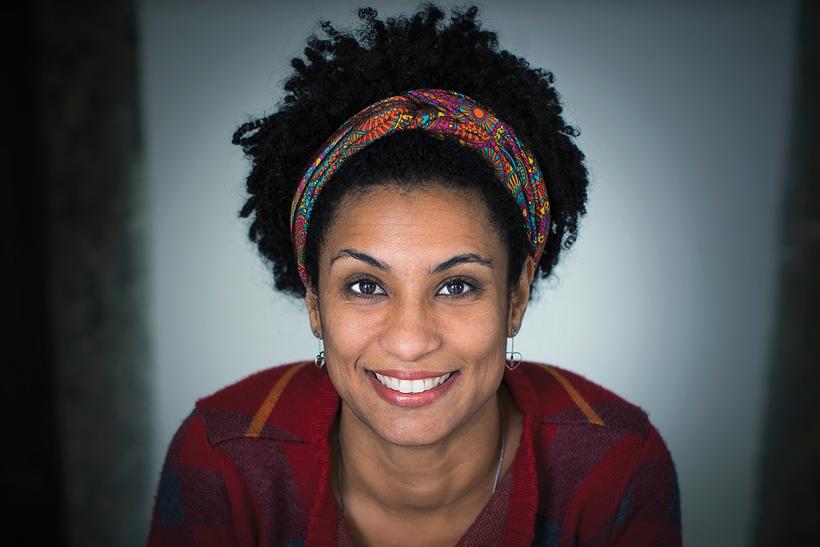
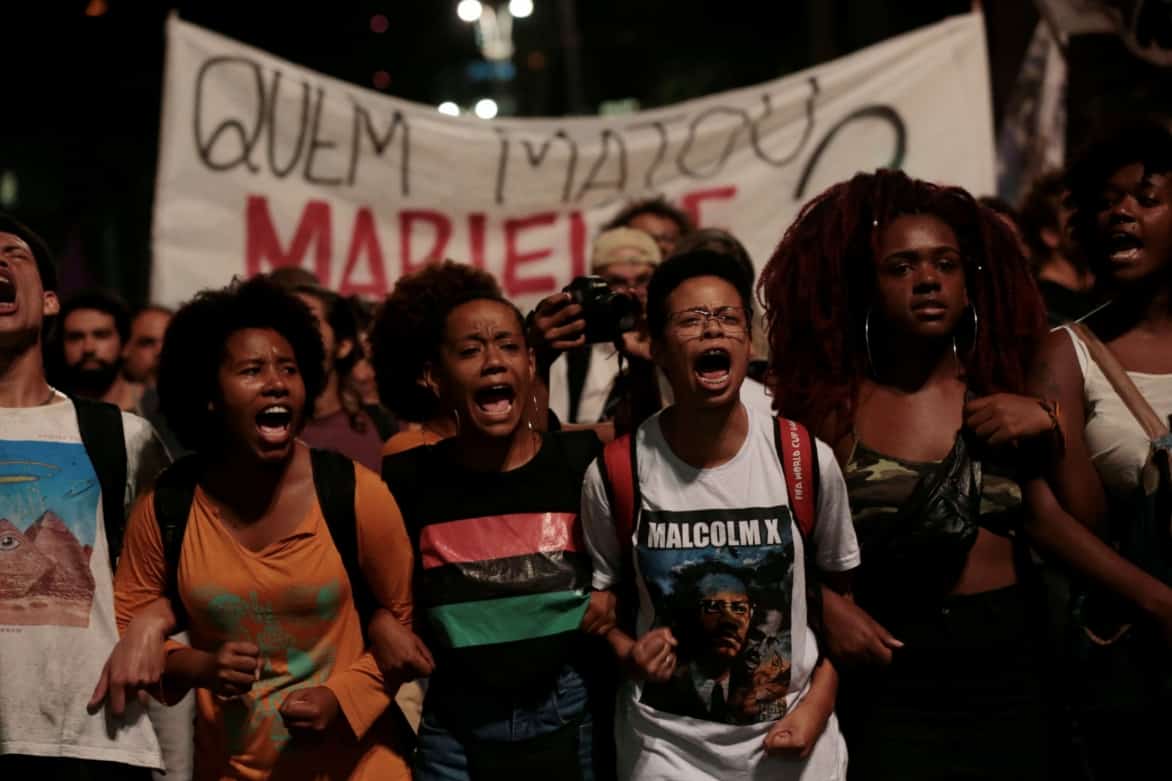
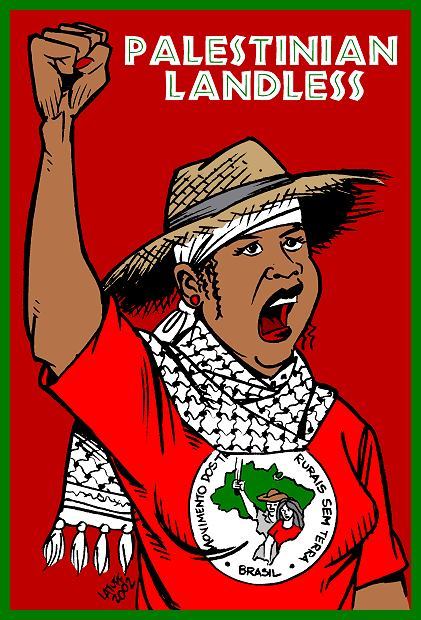
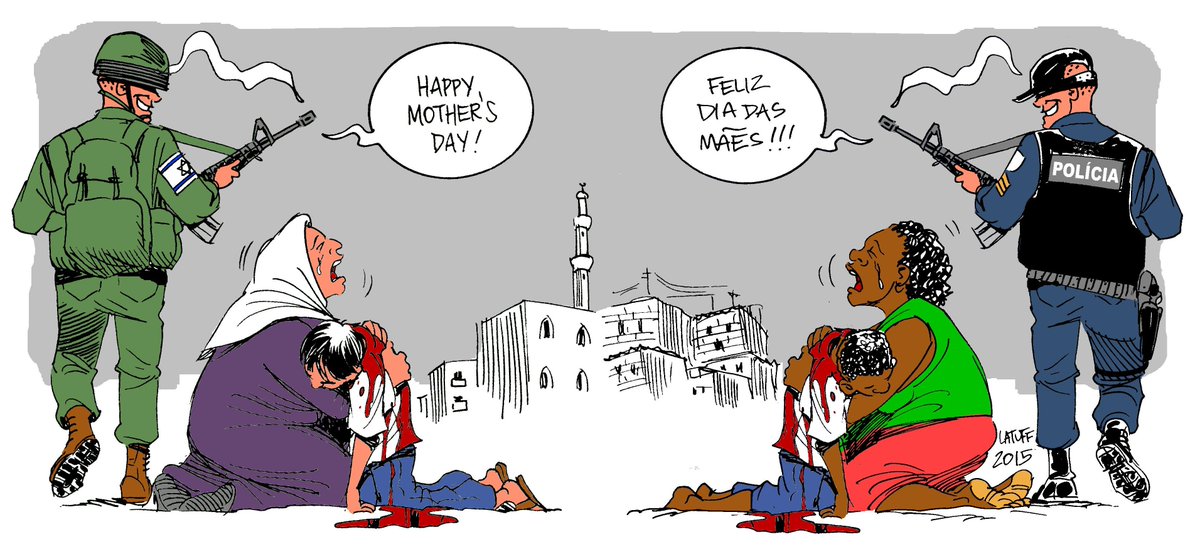

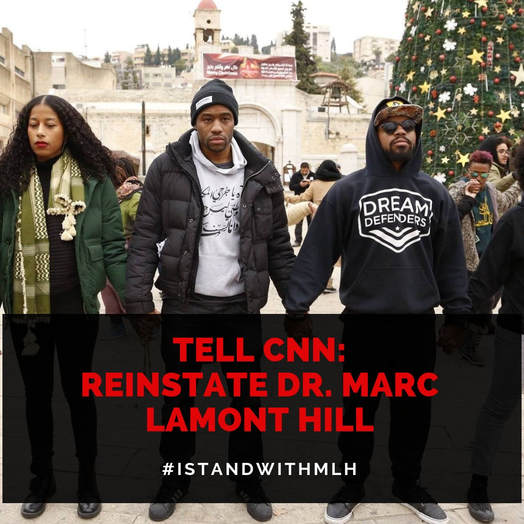
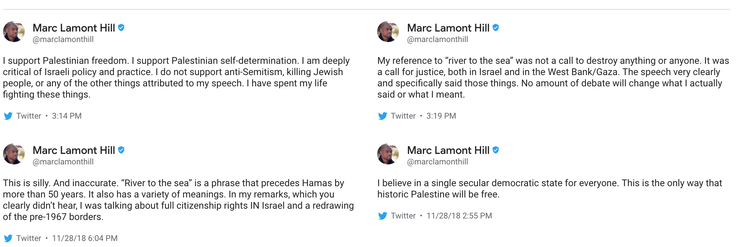
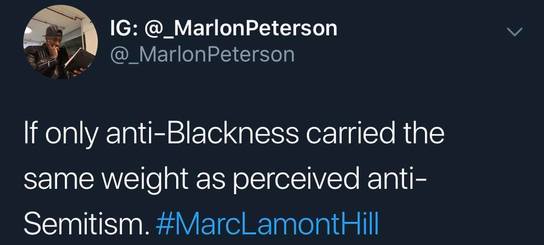
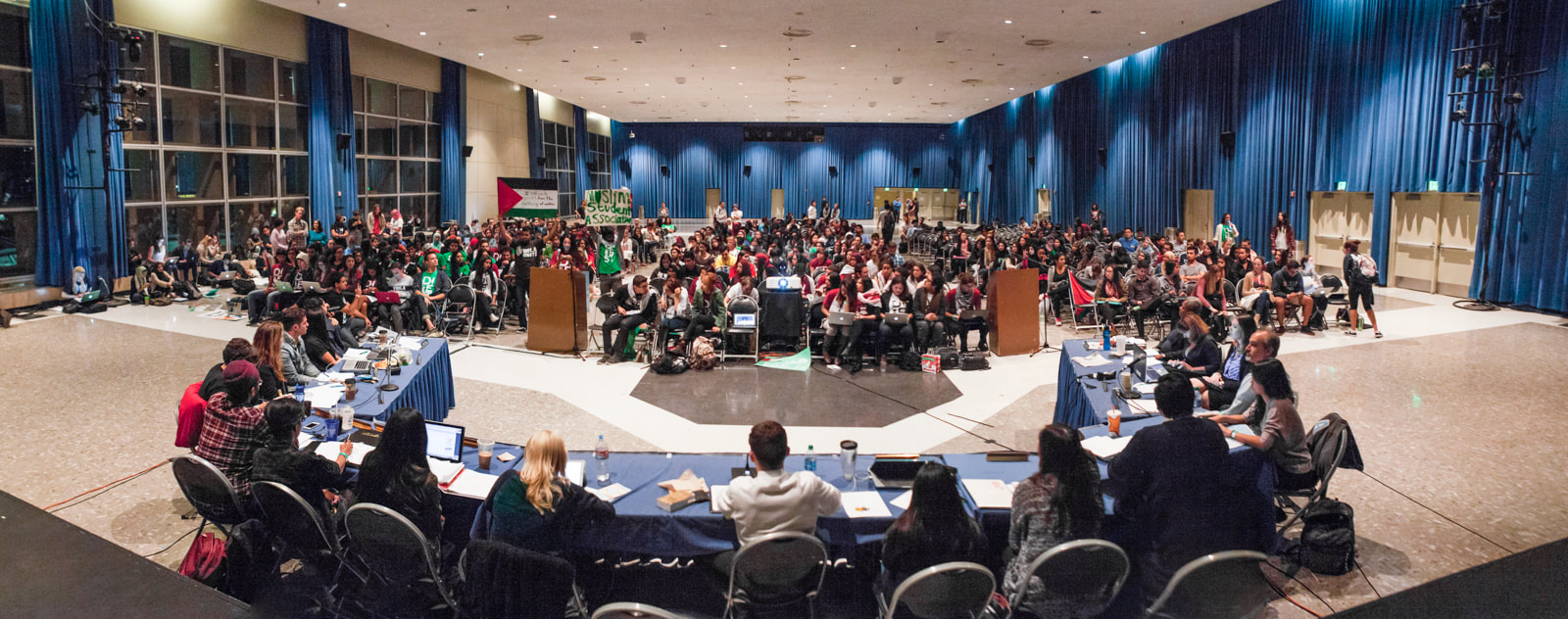
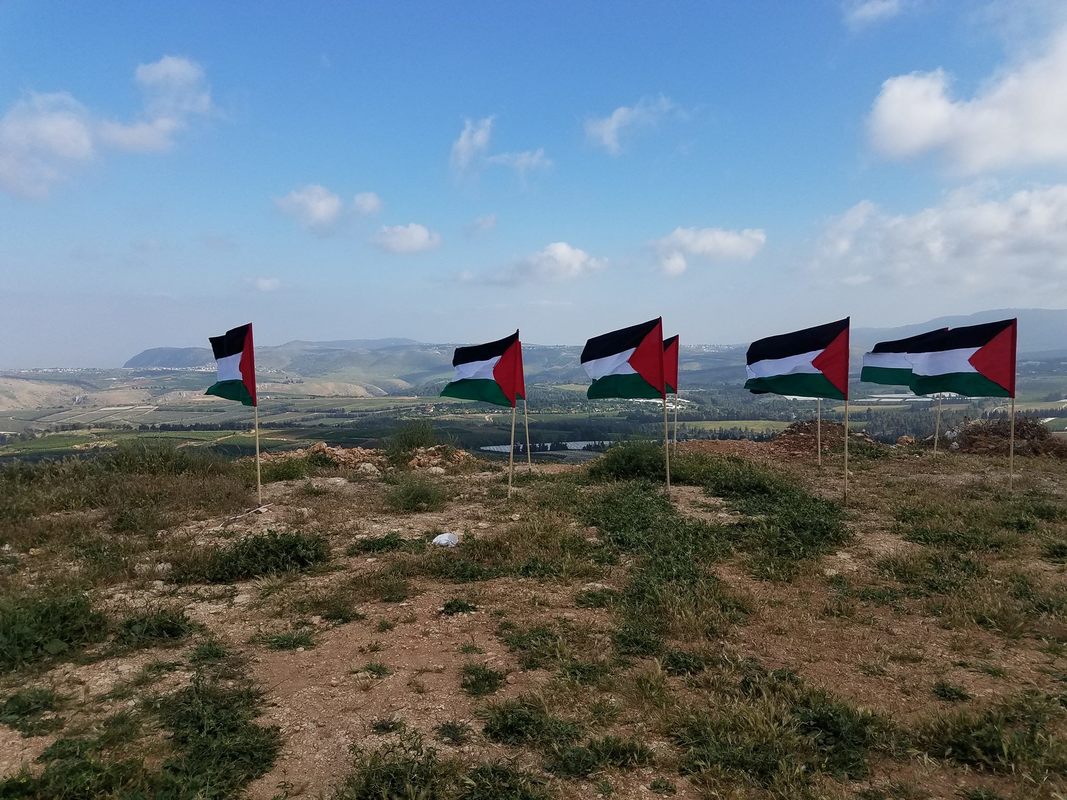
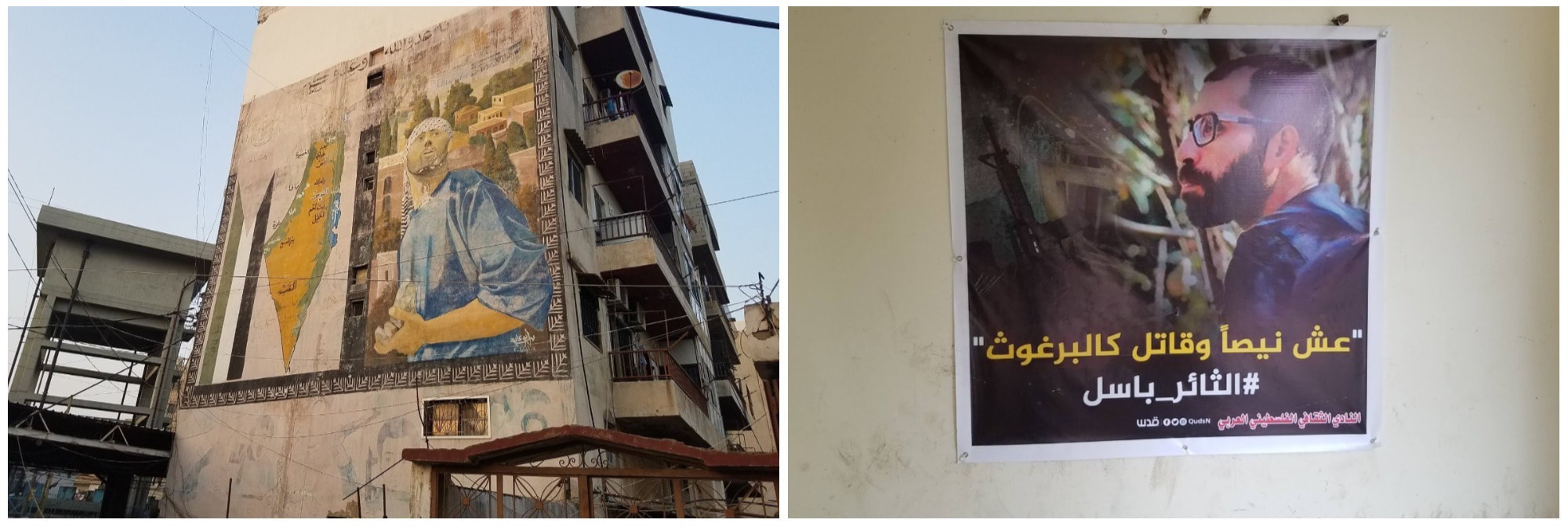
 RSS Feed
RSS Feed
